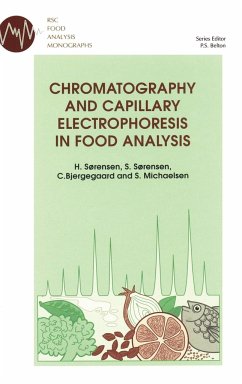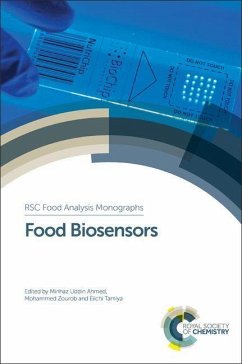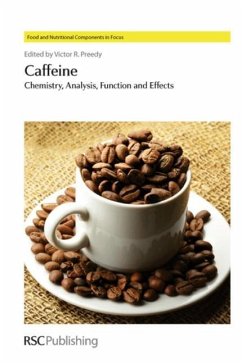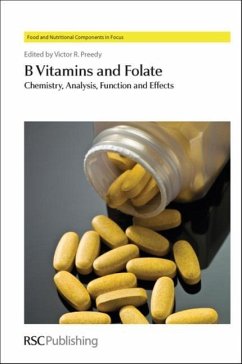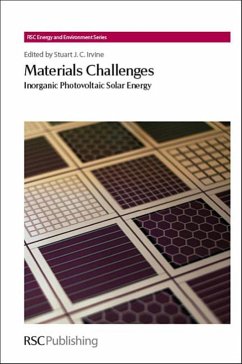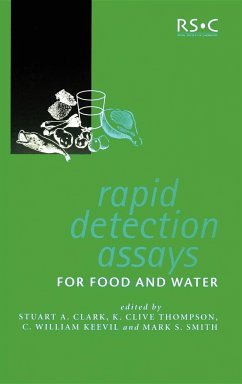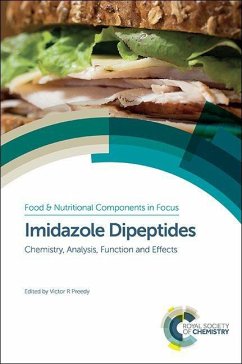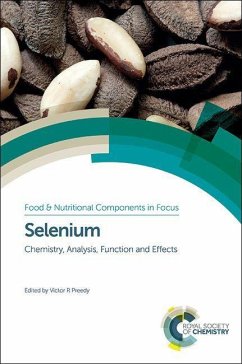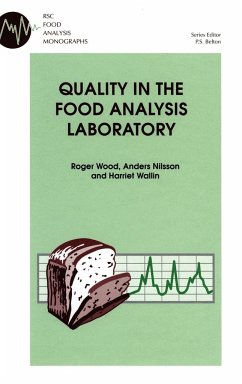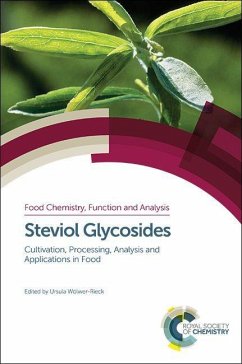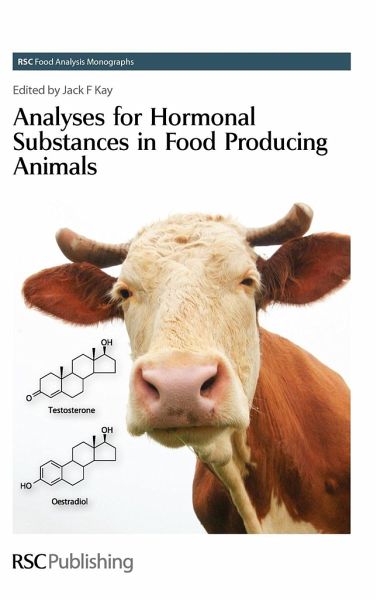
Analyses for Hormonal Substances in Food Producing Animals
Versandkostenfrei!
Versandfertig in über 4 Wochen
153,99 €
inkl. MwSt.

PAYBACK Punkte
77 °P sammeln!
This unique and definitive reference on hormone abuse in food producing animals is for scientists, regulators and consumers. It contains the results of a meeting held in November 2006 to discuss the progress made by the Veterinary Medicines Directorate (VMD) supported programme on steroid abuse detection. When the "hormone ban" first arose in the EU, there were only 15 Member States. There are now 27 and some newer members lack the background knowledge of this issue. This book sets out to summarise the history and show the significant progress that has been, and continues to be, made in this a...
This unique and definitive reference on hormone abuse in food producing animals is for scientists, regulators and consumers. It contains the results of a meeting held in November 2006 to discuss the progress made by the Veterinary Medicines Directorate (VMD) supported programme on steroid abuse detection. When the "hormone ban" first arose in the EU, there were only 15 Member States. There are now 27 and some newer members lack the background knowledge of this issue. This book sets out to summarise the history and show the significant progress that has been, and continues to be, made in this area. It is the only comprehensive review of this subject available and contains input from leading researchers from around the world. The initial chapters provide valuable background information. For example, the chapter on toxicology and risk covers the controversies arising from the interpretation of the effects of artificial hormones in meat-producing animals. The book then goes on to deal with how the issue has been managed via national and international detection programmes. It finishes by covering the resulting cutting edge analytical science including current research using "omics"/ profiling for "natural hormones" and novel detection techniques such as IRMS. This book offers readers an insight into the risk management of an important food related issue and how current analytical analyses can assist evidence-based risk assessments. There is comprehensive coverage of all past and current issues relating to growth promoting hormone abuse in animals.





